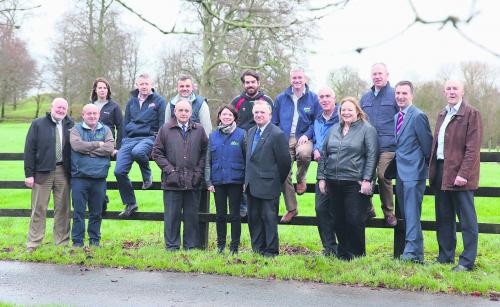
On Friday, 15th January at 11am, Teagasc/Dairygold Research Farm at Moorepark will host one of ten calf care on-farm events taking place throughout the month around the country. Over one million calves will be born on Irish dairy farms before the end of April this year.
Teagasc and Animal Health Ireland, in conjunction with the dairy milk processors Aurivo, Dairygold, Glanbia and Lakeland Dairies and supported by Volac, have joined forces to organise this series of ten calf events. Each event will promote best practice in rearing and looking after calves.
George Ramsbottom, Teagasc dairy specialist said their research shows that well-reared calves are more productive and profitable during their lifetime. Management practices that help include; ensuring that they receive adequate colostrum; are fed 6 litres of milk or milk replacer per day; and are weaned by weight rather than by age.
Grainne Dwyer, Animal Health Ireland says the four steps to successful calf rearing will be highlighted at these ten events.
“Adopting best management practices will help to prevent the introduction and spread of disease. Coccidiosis and cryptosporidium are two of the latest diseases to affect young calves. Controlling these diseases is just one of the topics to be discussed at these CalfCare events.”
According to Rebecca Carroll of Animal Health Ireland, getting the right amount of colostrum as early as possible is the secret of good calf management.
“Calves that get enough colostrum are less likely to get sick and will thrive better. Following the 1,2,3 rule and practising good hygiene will help to reduce the incidence of calf scour. In the event of scour occurring, and contrary to popular opinion, milk should not be withheld. However affected calves should receive additional electrolytes to help rehydrate and correct acidosis.”
The ten on-farm events which will take place in counties, Kildare, Wexford, Cork, Kilkenny, Waterford, Cavan, Limerick and Galway will focus on four key topics – the 1, 2, 3 of colostrum management; Performance of calves on either milk replacer or whole milk; Controlling cryptosporidium and coccidiosis in calves and finally, streamlining the workload during the calving season.







